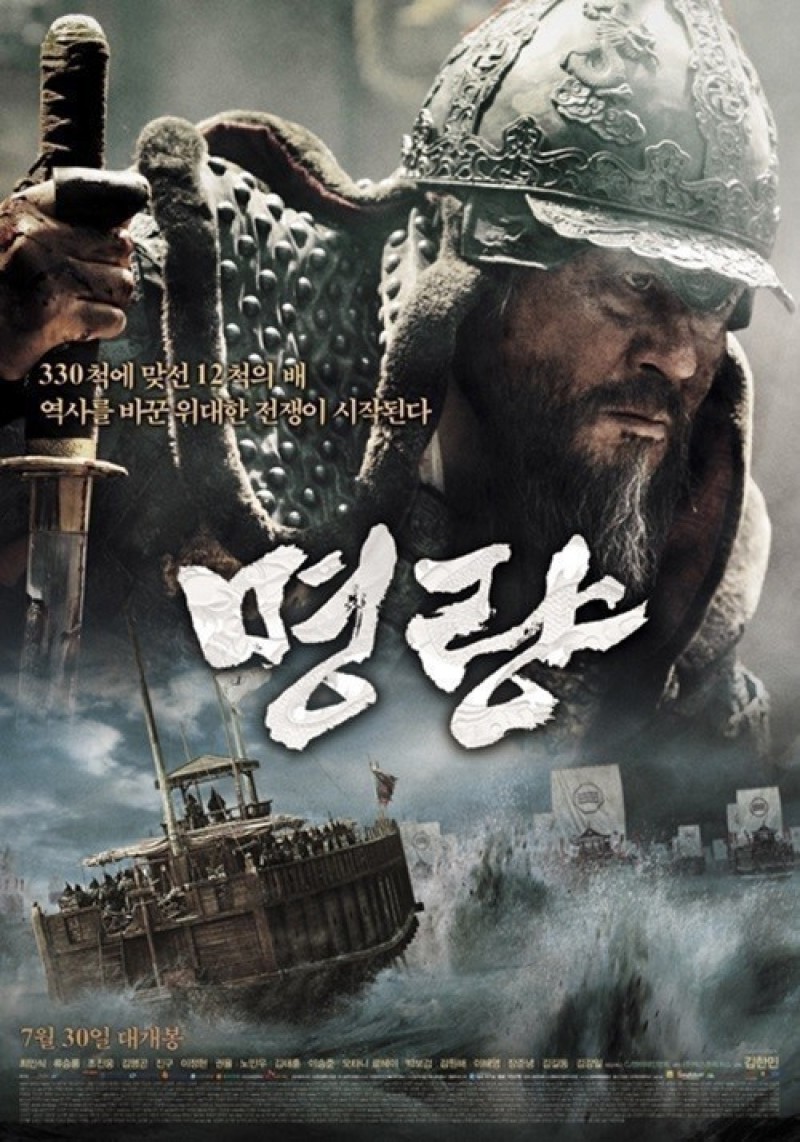

The Admiral Official Poster
The Korean historic block buster, The Admiral: Roaring Currents was releaed in China today in many major Chinese theaters, reports SBS TV. The film which features the Battle of Myeongryang, and the feats of Admiral Yi Sun Shin in the Japanese invasion of 1592, is the highest grossing motion picture ever in the history of Korean cinema. The film's date of release in China was reported to have been set on the day before China's memorial for the "Rape of Nanking" (December 13th).
SBS reported that The Admiral was released in over 3,000 theaters across the nation, and many people have shown very positive reactions to the picture. It is believed that this popularity with the film stems from Korea and China's shared history of numerous Japanese invasions and abuse over the course of their history.
The war of 1592 which is featured in The Admiral, lasted 7 years devastating Korea, and its last monarchy, the Chosun Dynasty. Interestingly, Ming China also fought alongside the Koreans in this war, for Hideyoshi Doyottomi, the leader of all the Samurai tribes that invaded Korea was believed to have considered conquering China as his ultimate goal, according to sources. During the war, the Ming imperial forces helped retake Korea's capital and played a vital role in ending the war just as significant as that of Admiral Yi. Even before and after the war of 1592, China and Korea have had numerous collisions with the Japanese.
Tomorrow, the 13th of December is the 77th anniversary of the "Rape of Nanking". For the first time, the Chinese government has officially designated the 13th of December as a national memorial day. Major Chinese news channels, including CCTV, have been broadcasting about the events that took place in Nanking during World War II 77 years ago.
Japan first invaded the Chinese province of Manchuria in 1931, which many historians claim actually marked the beginning of World War II. After establishing a new provincial government in Manchuria, the Japanese forces invaded Chinese mainland conquering every major city including Beijing, Macao, and Hong Kong. When Japanese forces entered the southern city of Nanking, sources and eye witness accounts tell us that the Japanese massacred civilians and completely uprooted the city. The Rape of Nanking is considered one of the most shameful events in Chinese history.
At the time, Korea was under the colonial rule of the Japanese Empire, and was deprived of its resources and manpower until Japan surrendered in August 1945.
According to SBS there is a very wide spread of anti-Japanese feelings in China. With the Rape of Nanking memorial to take place very soon, China is also locked in a territorial dispute with Japan over Diayudao Islands (Senkaku Islands).
The Admiral: Roaring Currents features the story of Admiral Yi Sun Shin in the Battle of Myeongryang where, according to sources Yi and the Korean navy defeated a Japanese armada of 300 ships with only 12 of their own ships. Admiral Yi is one of the most respected Koreans in history and his feats are well known even around the world, which earned him the nickname "Nelson of Asia". His tactics and naval strategies are taught at naval academies around the world including the U.S. Naval Academy. Chinese audiences expressed that they could enjoy the movie because they believed that Koreans and Chinese have the shared history of invasion and abuse from the Japanese throughout history.
Meanwhile, there are plans of a memorial ceremony to take place on the 13th to remember the events and those that dies at the Rape of Nanking. Key political figures including Chinese premiere Xi Jinping will be present at the ceremonies. The Chinese government, according to News 1 is believed to try and pressure the Abe administration further for compensation for their war crimes.


















